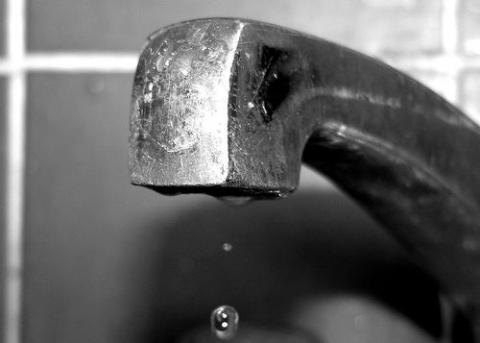The hazard waiting in the water

The ultimate example of the risk of moral hazard is our political class. By Philip O'Connor.
After the fury over the household charge came and went, we turn our attention to the next red herring – the water meters, and the charges, and how it’s all going to be done.
When will we get the message that none of this has anything to do with water or property, and everything to do with filling the massive hole in the coffers left by the banks?
Make no mistake – they’d tax the sunset if the troika told them to.
After all, they’ll soon be taxing the rainfall.
Let’s get the usual blather out of the way first. The troika is funding the state to the tune of €40 million a day, so essentially what they say goes - whether that be the most moronic attempt at a “property tax” in history, or imposing a charge for one of life’s necessities at a time when people can least afford it.
In fairness, you have to admire the socialist credentials of the troika and the Government once again, as they attempt to cast the net as widely as possible.
What is unfortunate is their continued insistence on letting those who caused this crisis go unpunished, financially, judicially or otherwise.
The argument will be trotted out that the State is living beyond its means regardless of the banks, and that is true – but there are two reasons for that.
One is the collapse of the banking system and the debts foisted upon us by Fianna Fáil and the Greens (not to mention the unsustainable promises of gold and green fields to everyone in the civil service).
The other is the collapse in tax revenue brought about by the recession, which in turn was brought about by – the collapse of the banks.
Are we starting to see a pattern here?
The Government isn’t.
The question is always asked- if not the troika, who? Who would provide the money to keep the State running?
The answer is that, as long as we have the bank debt – no-one.
And that is what keeps us in this downward spiral of misery.
Still, four years in, the root of our problems remains the same.
And because of the fact that we refuse to deal with it properly, it could well happen again, both politically and financially. None of us appears to have learned anything.
When it comes to private debt, much is made of the concept of “moral hazard”- that canceling someone’s debt will make them (and others) less likely to even attempt to pay debts in the future.
But it is a concept roundly ignored when it comes to the banks and those who invested in them – they are to be repaid; despite their risk being actualised, they still get to walk away as winners.
But ahead of even the banks as the ultimate example of the risk of moral hazard is our political class – regardless of the misery they foist upon people, they are confident they will be returned at the next election.
Which side of the house they sit on matters less to them than their continued participation in the political game. Opposition? So be it. They’ll still get paid. Still part of the game.
But if they won’t punish the banks or the investors, yet insist on punishing private debtors, maybe it’s about time the voters – many of them the private debtors being denied a chance to start again and bearing the burden of more and more taxes – punished them instead.
Then maybe they’ll get the point about “moral hazard”. {jathumbnailoff}
Originally published on Our Man in Stockholm. Reproduced with permission.
Image top: whatmeworry101.
